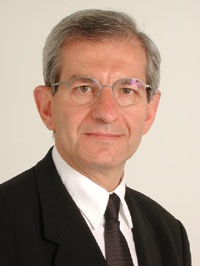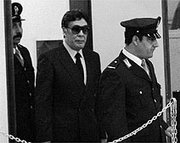
Pentito is used colloquially to designate collaborators of justice in Italian criminal procedure terminology who were formerly part of criminal organizations and decided to collaborate with a public prosecutor. The judicial category of pentiti was originally created in 1970s to combat violence and terrorism during the period of left-wing and right-wing terrorism known as the Years of Lead. During the 1986–87 Maxi Trial and after the testimony of Tommaso Buscetta, the term was increasingly applied to former members of organized crime in Italy who had abandoned their organization and started helping investigators.
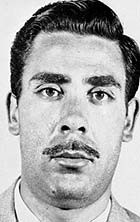
Tommaso Buscetta was a high ranking Italian mobster and a member of the Sicilian Mafia. He became one of the first of its members to turn informant and explain the inner workings of the organization.
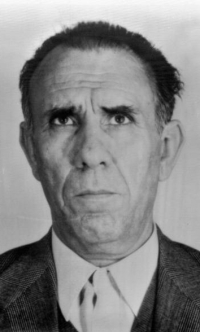
Gaetano Badalamenti was a powerful member of the Sicilian Mafia. Don Tano Badalamenti was the capofamiglia of his hometown Cinisi, Sicily, and headed the Sicilian Mafia Commission in the 1970s. In 1987, he was sentenced in the United States to 45 years in federal prison for being one of the leaders in the "Pizza Connection", a $1.65 billion drug-trafficking ring that used pizzerias as fronts to distribute heroin from 1975 to 1984. He was also sentenced in Italy to life imprisonment in 2002 for the 1978 murder of Peppino Impastato.

Salvatore Achille Ettore Lima, often referred to as Salvo Lima, was an Italian politician from Sicily who was associated with, and murdered by, the Sicilian Mafia. According to the pentito Tommaso Buscetta, Lima's father, Vincenzo Lima, was a member of the Mafia but it is not known whether Lima himself was a made member of Cosa Nostra. In the final report of the first Antimafia Commission (1963–1976), Lima was described as one of the pillars of Mafia power in Palermo.

Stefano Bontade, born Stefano Bontate, was a powerful member of the Sicilian Mafia. He was the boss of the Santa Maria di Gesù Family in Palermo. He was also known as the Principe di Villagrazia − the area of Palermo he controlled − and Il Falco. He had links with several powerful politicians in Sicily, and with prime minister Giulio Andreotti. In 1981 he was killed by the rival faction within Cosa Nostra, the Corleonesi. His death sparked a brutal Mafia War that left several hundred mafiosi dead.

The Maxi Trial was a criminal trial against the Sicilian Mafia that took place in Palermo, Sicily. The trial lasted from 10 February 1986 to 30 January 1992, and was held in a bunker-style courthouse specially constructed for this purpose inside the walls of the Ucciardone prison.
Antonino "Nino" Giuffrè is an Italian former mafioso who later became a justice collaborator. The head of the mandamento of Caccamo, he was the second-highest ranked member of Cosa Nostra. He became one of the most important Mafia turncoats, or pentito, after his arrest in April 2002, providing further information about its inner workings.

Francesco Marino Mannoia is a former member of the Sicilian Mafia who became a pentito in 1989. His nickname was Mozzarella. He is considered to be one of the most reliable government witnesses against the Mafia. Antimafia magistrate Giovanni Falcone, who was first to interrogate him, recalled Marino Mannoia as an intelligent and reliable witness.
The Sicilian Mafia Commission, known as Commissione or Cupola, is a body of leading Sicilian Mafia members who decide on important questions concerning the actions of, and settling disputes within the Sicilian Mafia or Cosa Nostra. It is composed of representatives of a mandamento who are called capo mandamento or rappresentante. The Commission is not a central government of the Mafia, but a representative mechanism for consultation of independent Mafia families who decide by consensus. Its primary role is to keep the use of violence among families within limits tolerable to the public and political authorities.
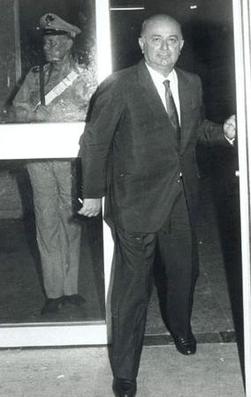
Ignazio Salvo and his cousin Nino Salvo were two wealthy businessmen from the town of Salemi in the Italian province of Trapani. They had strong political connections with the Christian Democracy party, in particular with the former mayor of Palermo, Salvo Lima, and Giulio Andreotti. At the Maxi Trial against the Sicilian Mafia in the mid-1980s, they were convicted of association with Mafia members.
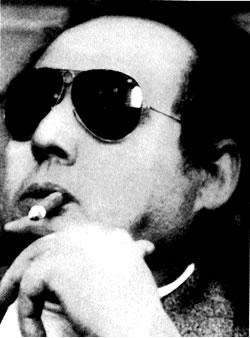
The Corleonesi Mafia clan was a faction within the Corleone family of the Sicilian Mafia, formed in the 1970s. Notable leaders included Luciano Leggio, Salvatore Riina, Bernardo Provenzano, and Leoluca Bagarella.
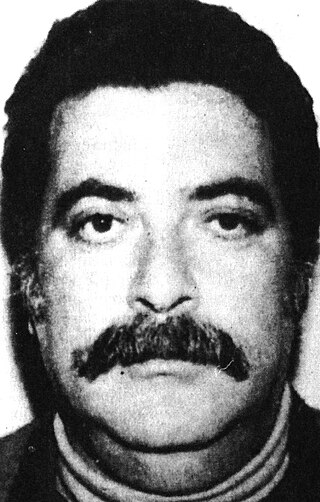
Antonino Calderone was a Sicilian Mafioso who turned state witness (pentito) in 1987 after his arrest in 1986.
Gaspare Mutolo is a Sicilian mafioso, also known as "Asparino". In 1992 he became a pentito. He was the first mafioso who spoke about the connections between Cosa Nostra and Italian politicians. Mutolo's declarations contributed to the indictment of Italy's former Prime Minister Giulio Andreotti and to an understanding of the context of the 1992 Mafia murders of the politician Salvo Lima and the magistrates Giovanni Falcone and Paolo Borsellino.
The Antimafia Commission is a bicameral commission of the Italian Parliament, composed of members from the Chamber of Deputies and the Senate of the Republic. The first commission, formed in 1963, was established as a body of inquiry tasked with investigating the "phenomenon of the [Sicilian] Mafia". Subsequent commissions expanded their scope to investigate all "organized crime of the Mafia type", which included other major criminal organizations in Italy, such as the Camorra, the 'Ndrangheta, and the Sacra Corona Unita.
Leonardo "Narduzzo" Messina is a Sicilian former mafioso who became a government informant or "pentito" in 1992. His testimony led to the arrest of over 200 mafiosi during the so-called "Operation Leopard". Messina has implicated several politicians and government officials with ties to Sicilian Mafia, in particular Giulio Andreotti, seven times Prime Minister for Italy.
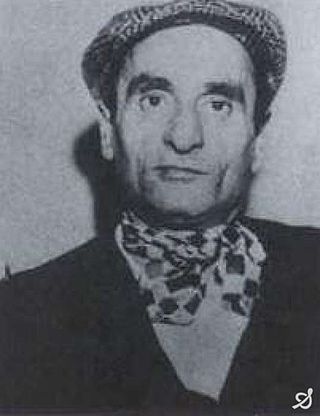
Pietro Torretta was a member of the Sicilian Mafia. He was the boss of the Mafia family in the Uditore district in Palermo and one of the protagonists in the First Mafia War. He was initially considered to be the man behind the Ciaculli massacre.
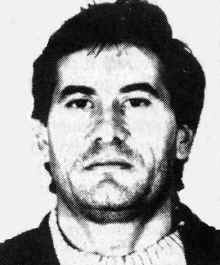
Antonio Bardellino was a powerful Camorrista and boss of the Casalesi clan, having a prominent role in the organized crime in the province of Caserta during the 1980s. He was one of the last of the old-style Camorra godfathers.

Salvatore Riina, called Totò, was an Italian mobster and chief of the Sicilian Mafia, known for a ruthless murder campaign that reached a peak in the early 1990s with the assassinations of Antimafia Commission prosecutors Giovanni Falcone and Paolo Borsellino, resulting in widespread public outcry, legal change and a major crackdown by the authorities. He was also known by the nicknames la belva and il capo dei capi.
The Ciaculli massacre on 30 June 1963 was caused by a car bomb that exploded in Ciaculli, an outlying suburb of Palermo, killing seven police and military officers sent to defuse it after an anonymous phone call. The bomb was intended for Salvatore "Ciaschiteddu" Greco, head of the Sicilian Mafia Commission and the boss of the Ciaculli Mafia family. Mafia boss Pietro Torretta was considered to be the man behind the bomb attack.
The term State-Mafia Pact describes an alleged series of negotiations between important Italian government officials and Cosa Nostra members that began after the period of the 1992 and 1993 terror attacks by the Sicilian Mafia with the aim to reach a deal to stop the attacks; according to other sources and hypotheses, it began even earlier. In summary, the supposed cornerstone of the deal was an end to "the Massacre Season" in return for a reduction in the detention measures provided for Italy's Article 41-bis prison regime. 41-bis was the law by which the Antimafia pool led by Giovanni Falcone had condemned hundreds of mafia members to the "hard prison regime". The negotiation hypothesis has been the subject of long investigations, both by the courts and in the media. In 2021, the Court of Appeal of Palermo acquitted a close associate of former prime minister Silvio Berlusconi, while upholding the sentences of the mafia bosses. This ruling was confirmed by the Italian Supreme Court of Cassation in 2023.
